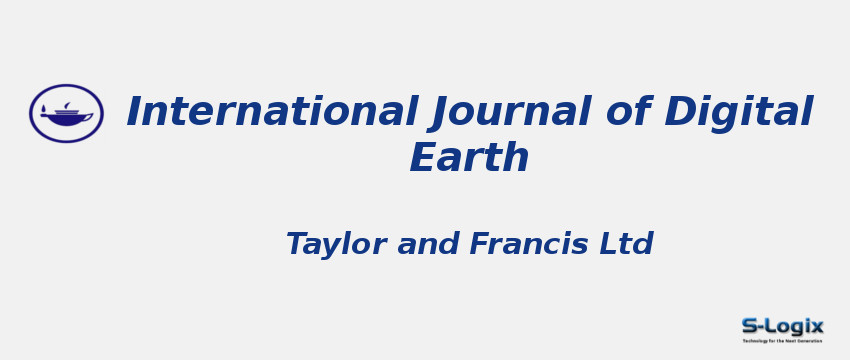Journal Home: Journal Homepage
Editor-in-Chief: Huadong Guo
Print ISSN: 17538947
Electronic ISSN: 17538955
Abstracting and Indexing: Science Citation Index Expanded, SCOPUS
Imapct Factor 2024: 3.7
Subject Area and Category: Computer Science,Computer Science Applications,Software,Earth and Planetary Sciences ,Earth and Planetary Sciences (miscellaneous)
Publication Frequency:
H Index: 69
Q1: Earth and Planetary Sciences (miscellaneous)
Q2:
Q3:
Q4:
Cite Score: 6.1
SNIP: 1.355
Journal Rank(SJR): 1.111
Latest Articles: Latest Articles in International Journal of Digital Earth
Guidelines for Authors: International Journal of Digital Earth Author Guidelines
Paper Submissions: Paper Submissions in International Journal of Digital Earth
Publisher: Taylor and Francis Ltd.
Country: United Kingdom
